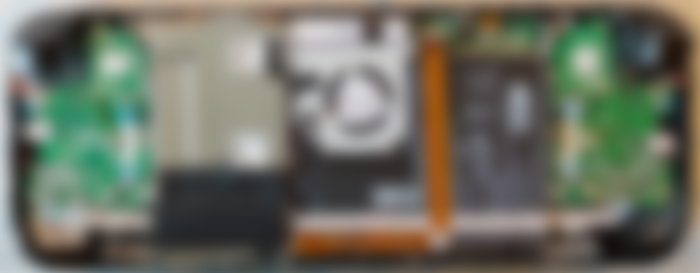On October 6, Valve uploaded a video on its YouTube channel where it finally showed (some of) the Steam Deck's internals. And I have to say, I came away way more impressed than I expected out of a teardown video.
The Teardown
The video was, by no means, perfect. I did have issues with the organization where the teardown would, for instance, demonstrate a step with unrelated commentary, go back to the beginning of that step, and then, doing it again with the actual explanation. But other than that, the video was intuitive and the host did a good job explaining how to open up the Steam Deck.
From the get go, what immediately stood out to me was not even related to the actual teardown, but Valve's upmost respect for people who intend to tinker with their eventual Steam Decks. While it half jokingly advised its audience that they "shouldn't do any of this" (most likely to avoid lawsuits), it's honestly a breath of fresh air to see a big company take a pro right to repair stance (I'm looking at you, Apple...).
This is the exact opposite of what Valve is doing.
Unsurprisingly, all of the parts are packed tightly together. After all, it is packing AMD's x86 4 core/8 thread Zen 2 CPU with 8 RDNA2 compute units. Unlike ARM SoCs, even low power x86 chips still consume more power and thus, require a beefier cooling solution. But even then, the placement of each part was well thought out. What really caught my eye, were the two L's and R's on each side.

Those L's and R's label the joysticks and touchpads. What was even cooler was when the host simply unlatched the flex cable from the right joystick, undo 3 screws, and simply took it out. While the Valve repeatedly suggested throughout the video to leave the tinkering to the "professionals", the process appears to be super easy.
You may be thinking, "Okay, cool party trick, but how does this matter?". If you listen in at 2:58, Valve confirmed that you can purchase spare joysticks, SSDs, and "possibly more" (so spare trackpads may be in play, too). This is huge as stick drift has been a rampant issue across the gaming industry. Nintendo's Joycons are the most infamous case, but the problem also applies to the PlayStation and Xbox controllers. If your controller suffers from stick drift and it's out of warranty, then you're out of luck and need to buy a new one. However, if your left thumbstick on the Steam Deck, for example, is drifting, then you just need to buy that specific part, open up your device, and replace it.
But Games Are Still King
The way Valve has handled the PR behind Steam Deck from the initial announcement to the present is extremely impressive. Switching from Debian to Arch was the right call so that drivers are more up to date with the latter's rolling release nature. The hardware is very reasonable for its form factor and the ergonomics are very good. The plethora of inputs gives the Steam Deck the flexibility to adapt to different genres. And thanks to Valve's efforts with Epic and BattlEye, enabling anti-cheat support to Proton/WINE is allegedly as easy as "just a few clicks" (more on that here). Best of all, this will also benefit the Linux desktop (and it's already gaining marketshare on Steam).
However, at the end of the day, it all comes down to the games. Valve has made pretty big claims that by the Steam Deck's launch, it (and by extension, Linux) will be compatible with the vast majority of the library. While the latest SDKs for Easy Anti-Cheat and BattlEye now support Proton/WINE, it is still up to the developers to enable support on their end. Reddit user Starz0r made a pretty neat ProtonDB-like site called "Are We Anti-Cheat Yet?" that lists multiplayer games that already have anti-cheat support, will eventually get support, or has not yet gotten confirmation for support. As you can see, there are still quite a lot of games whose developers have yet to make an official statement.
As a result, that may serve to be a major hurdle that stands in the way between Linux gaming taking off. It may come down to how well the Steam Deck sells and how much more marketshare Linux will grab.
